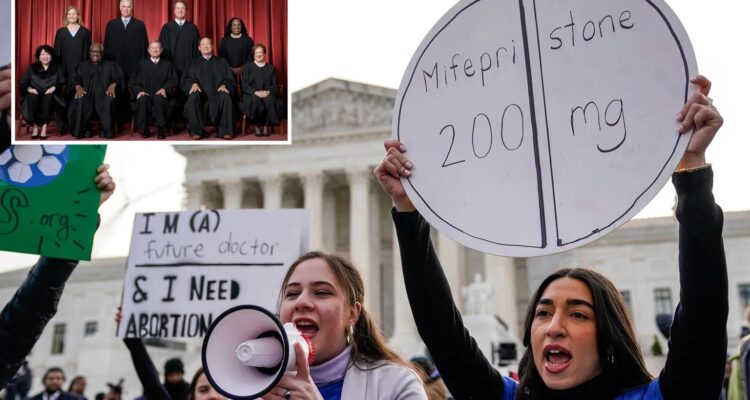In a unanimous decision written by Justice Kavanaugh, the Supreme Court rejected calls from anti-abortion groups to restrict access to abortion pills.
Those who object to what a law allows others to do can always “seek greater regulatory or legislative restrictions on certain activities,” Justice Kavanaugh wrote.

This means that states can challenge the availability of Mifepristone, the most commonly used medication.
As it stands now, patients can still get the pills through telemedicine and the mail.
The attorney general, Merrick B. Garland, said he was pleased by the Supreme Court’s decision. “The Department of Justice is committed to protecting reproductive freedom. We will continue to use every tool at our disposal to protect women’s access to mifepristone and other lawful reproductive care,” he said in a statement.
President Joe Biden went even further on the politically motivated attacks on women’s rights:
The FDA approved the abortion pills more than two decades ago.
However, the fight is far from over; 14 States have near-total abortion bans in this post-Roe world.
“The anti-abortion movement sees how critical abortion pills are in this post-Roe world, and they are hell bent on cutting off access,” Nancy Northup, the president of the Center for Reproductive Rights, said in a statement.

